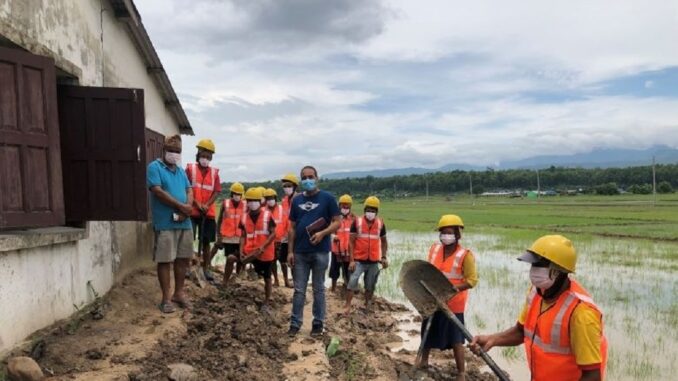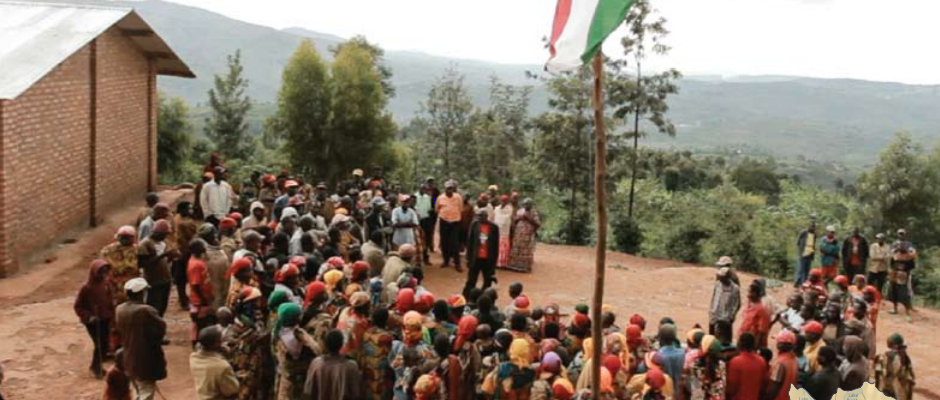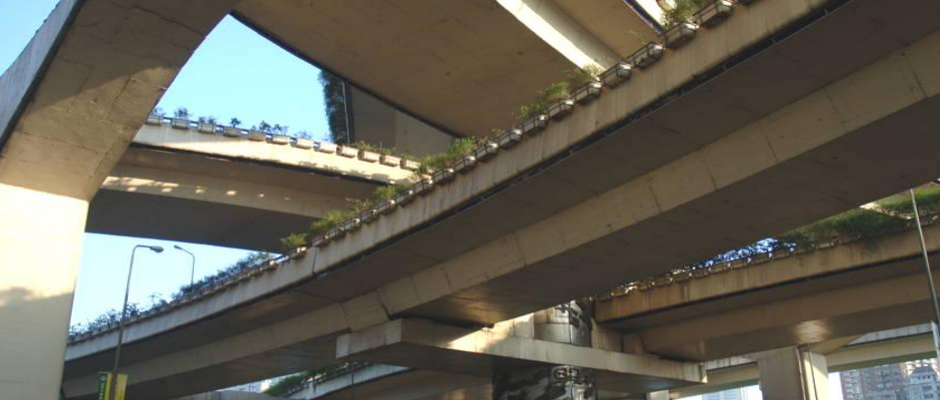
Meghiya Musahar, 45, from Kawasoti Municipality in Nepal’s Gandaki Province used to work as a daily wage earner at different temporary jobs, including construction work. Soon after the COVID-19 pandemic hit Nepal in March 2020, she lost her livelihood, along with hundreds of thousands of other people in the country.
Meghiya lives with her husband, 58, who has physical disability. She is the only primary provider for her family. She belongs to the Musahar community, which is among the most disadvantaged and marginalized groups in Nepal.
Musahar women in particular endure extreme forms of poverty. But a new initiative in her area that started in May has offered Meghiya a beacon of hope, providing her employment as an unskilled worker working on a drainage rehabilitation project for 29 days and receiving a payment of Rs 19,430 (approximately $165).
Kawasoti is one among twelve municipalities across Nepal’s seven provinces that are providing COVID-19 recovery support for vulnerable groups through Labor Intensive Public Works (LIPW) under the $150 million Nepal Urban Governance and Infrastructure Project (NUGIP).
The Nepal Urban Governance and Infrastructure Project (NUGIP) was launched on January 27, 2021 and supports the implementation of federalism as enshrined in Nepal’s 2015 Constitution, which transformed Nepal to a federal state. The project, supported by the World Bank, empowered local and provincial governments, and substantially increased responsibilities and financing for service delivery.
NUGIP is being implemented through 2021-2025 with a focus on strengthening urban service delivery, including roads and drainages, and improving urban management in strategic secondary cities, such as financial management, procurement, revenue collection, and asset management.
The project also supports the post-COVID-19 economic recovery through labor intensive public works, delivering small scale community infrastructure maintenance and rehabilitation projects in roads, sanitation, water, environment, and parks through cash-for-work schemes.
“This project is helping our municipality support the most vulnerable in our community and address priority small-scale maintenance activities in an inclusive manner – all in a way that is fully integrated with our existing planning and budgeting processes.” said Chandra Kumari Pun, Mayor of Kawasoti Municipality. “This is a welcome step forward to help us realize our vision for inclusive local development in Kawasoti. We look forward to continuing effective implementation, reaching more people, and delivering results on the ground in our municipality.”
Read more about NUGIP’s impact on livelihoods as part of the post-COVID-19 economic recovery :
NUGIP Project documents: https://projects.worldbank.org/en/projects-operations/project-detail/P163418




